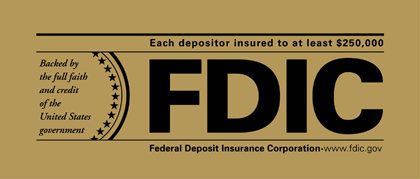CCSB branches will be closed on Friday, July 4, 2025 in observance of Independence Day.
CCSB branches will be closed on Friday, July 4, 2025 in observance of Independence Day.


FDIC insurance coverage is based on the type of deposit you have. For example, a checking account is insured separately from a certificate of deposit (CD).
FDIC insurance coverage is based on how much money each depositor has in one of several "ownership categories" at each bank — single accounts, joint accounts, revocable trusts, and certain retirement accounts and so on — not on the deposit product itself.
Adding beneficiaries to Individual Retirement Accounts (traditional and Roth) and certain other retirement accounts can increase the FDIC insurance coverage.
The FDIC adds together all the retirement accounts that a person has at a bank in the insurance category called "Certain Retirement Accounts" and insures them up to $250,000, regardless of the number of beneficiaries designated to receive the retirement accounts upon the owner's death.
The more joint accounts you own, the more FDIC insurance coverage you can qualify for.
The FDIC looks at each person's share in all the joint accounts he or she owns at one institution and that total is insured up to $250,000, no matter how many joint accounts or co-owners there may be. The FDIC also assumes that all co-owners' shares are equal unless the deposit account records state otherwise.
You can increase the deposit insurance coverage of joint accounts at one bank by changing the order of the names or the Social Security numbers on the account.
Contrary to some beliefs, titling one joint account as belonging to “Joe and Mary” and another as “Mary and Joe” — or varying the Social Security numbers — will not increase the insurance coverage. The same goes for replacing “and” between their names with “or.”
The FDIC can take up to 99 years to pay insured deposits when a bank fails.
The truth is that federal law requires the FDIC to pay deposit insurance "as soon as possible." For insured deposits — those within the deposit insurance limits — the FDIC almost always pays insured depositors within a few business days of a closing, usually the next business day. Payment is made either by providing each depositor a new account at another insured institution or by issuing a check to each depositor. The limited exceptions that may take longer to process primarily are deposits that both exceed $250,000 and are linked to trust documents, and accounts established by a third-party broker on behalf of other individuals.